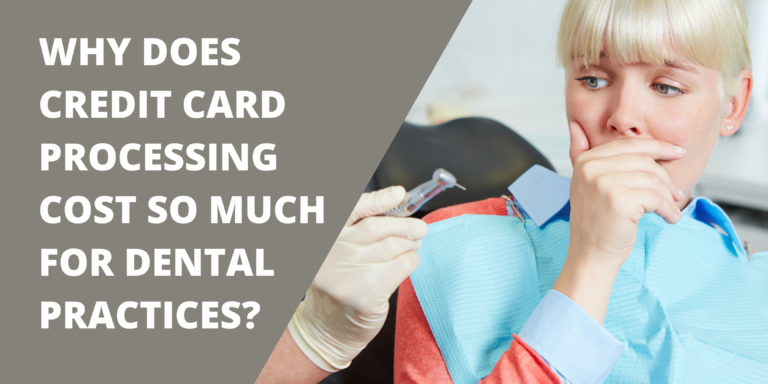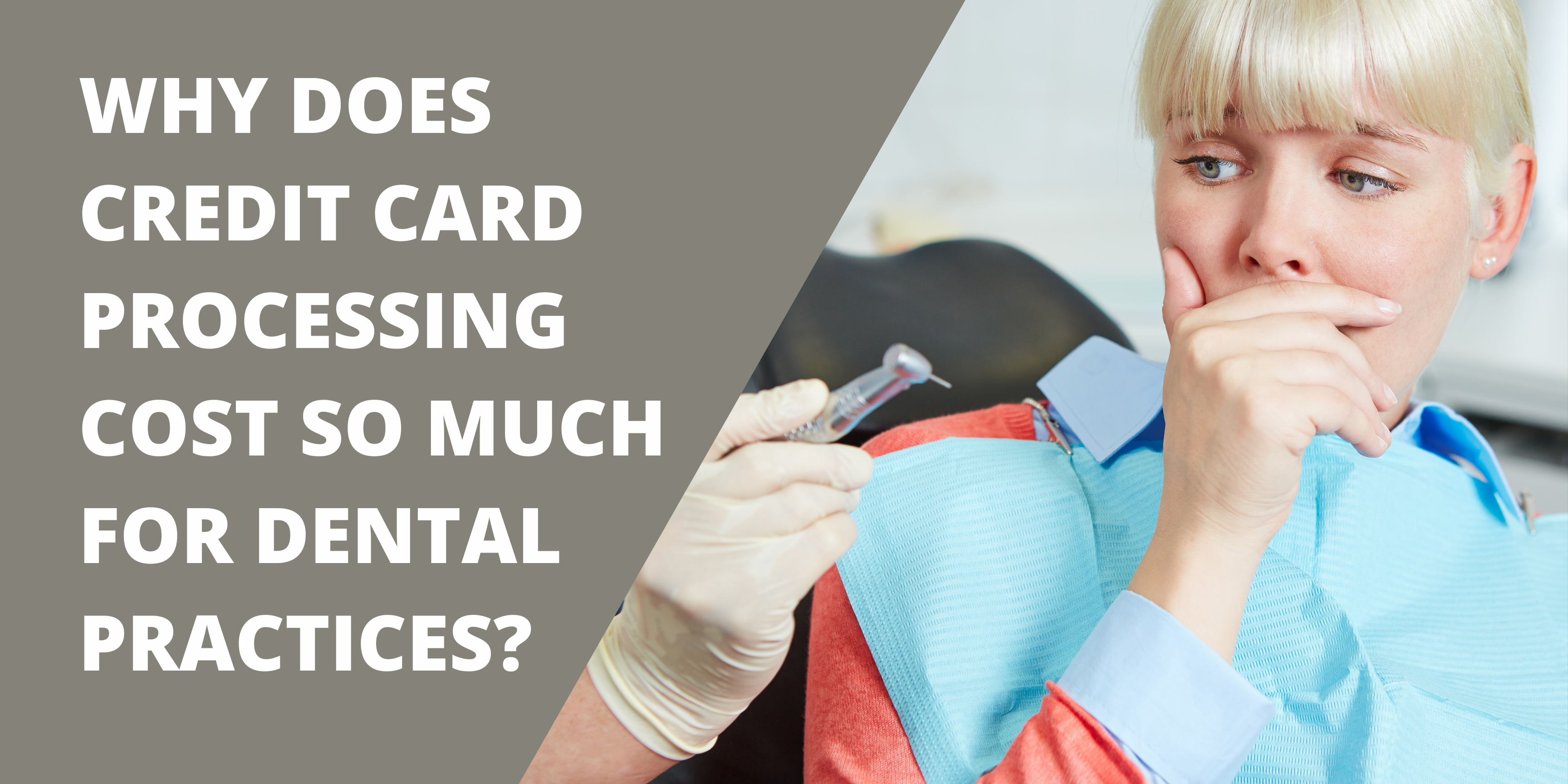As a dental practice, you might find yourself frequently questioning why credit card processing costs are so high. These fees can significantly impact your bottom line, making it essential to understand the factors driving these costs and how you can potentially reduce them. This blog delves into the reasons behind the high credit card processing costs for dental practices and provides actionable tips for managing these expenses effectively.
Reasons Why Credit Card Processing Fees are High for Dental Practices
Have you ever wondered why credit card processing fees are high for dental practices? Understanding the reasons behind these costs can help dental practices manage their expenses better and explore ways to reduce them.
Complexity of Dental Services
Dental practices offer a variety of services, from routine cleanings to complex surgeries. Each service can involve different billing codes, making the payment process more complex. This complexity requires more sophisticated processing systems, which can drive up costs.
Higher Risk of Chargebacks
Dental services often involve high-ticket transactions. When patients dispute charges, known as chargebacks, it can be costly for dental practices. Processors charge higher fees to cover the risk associated with these disputes, which is more common in industries with larger transaction amounts.
Regulatory Compliance
Dental practices must comply with stringent healthcare regulations, such as the Health Insurance Portability and Accountability Act (HIPAA). Ensuring that payment processing systems are compliant with these regulations requires additional security measures, which add to the cost.
Specialized Equipment and Software
Processing credit card payments in a dental practice often requires specialized equipment and software that integrate with practice management systems. These tools ensure seamless operations but come with higher costs than standard retail payment systems.
Interchange Fees
Interchange fees are set by credit card networks (like Visa and MasterCard) and paid to the card-issuing bank every time a card is used. These fees can vary widely based on the type of card and transaction. Dental practices, with their varied and often high-cost services, may face higher interchange fees.
Merchant Category Codes (MCC)
Merchant Category Codes classify businesses based on the services they provide. Dental practices fall under a specific MCC that may have higher processing fees compared to other industries. These codes influence the rates set by credit card processors.
Strategies to Reduce Credit Card Processing Costs
Despite the inherent challenges and high costs associated with credit card processing for dental practices, there are strategies you can employ to manage and potentially reduce these expenses.
Shop Around for Providers
One of the most effective ways to reduce credit card processing costs is to compare different providers. Not all credit card processors charge the same fees, and some may offer better rates for dental practices. Take the time to shop around and request quotes from multiple providers to find the most competitive rates.
Negotiate Fees
Don’t hesitate to negotiate with your current credit card processor. Many providers are willing to negotiate fees to retain your business. If you’ve been a loyal customer with a solid transaction history, use this as leverage to request lower rates.
Encourage Alternative Payment Methods
Encouraging patients to use alternative payment methods, such as debit cards or Automated Clearing House (ACH) transfers, can help reduce processing costs. Debit card transactions typically incur lower fees compared to credit cards, and ACH transfers can be even more cost-effective for large payments.
Review Statements Regularly
Regularly reviewing your credit card processing statements can help identify unnecessary fees or errors. Ensure you understand all the charges on your statement and don’t hesitate to question any fees that seem excessive or unclear. Being vigilant about your statements can help you catch and address issues early.
Leverage Technology
Investing in integrated payment solutions that offer lower rates and better efficiency can also help reduce costs. Modern payment processing systems designed specifically for healthcare providers can streamline operations and reduce the complexity of managing payments, leading to lower fees.
Educate Your Staff
Ensuring that your staff is well-trained in processing payments and handling patient billing can also help reduce costs. Mistakes in billing and payment processing can lead to increased fees and chargebacks. By educating your staff on best practices, you can minimize errors and disputes, ultimately lowering your costs.
Conclusion
Credit card processing costs can be a significant expense for dental practices due to the complexity of services, higher risk of chargebacks, regulatory compliance requirements, specialized equipment and software, and interchange fees. However, by understanding these factors and implementing strategies to manage them, dental practices can take proactive steps to reduce their credit card processing costs.
From shopping around for better rates to encouraging alternative payment methods and leveraging technology, there are several ways to keep these expenses in check. By being informed and proactive, dental practices can ensure they are managing their credit card processing costs effectively, ultimately improving their bottom line.


